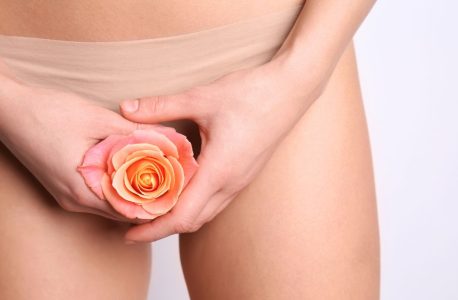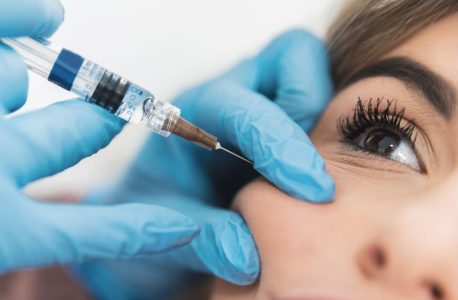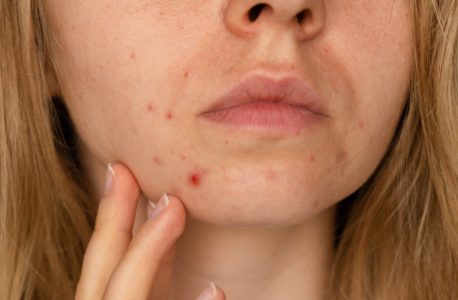In this article we’ll explain what the lymphatic system is, why it’s important and how lymphatic drainage can contribute to our general well-being, as well as reducing fluid retention.
Our body is made up of several systems that work as a team to ensure that it functions properly and thus achieves a full state of physical, mental and social well-being. This full state is the definition of health, which is so valuable and coveted by us and those we love.
Health has always been a pragmatic topic that has gained even more prominence during the pandemic. When we talk about the concept of “health”, we inevitably also talk about the immune system. The immune system, of which the lymphatic system is a part, is responsible for keeping us from getting sick, as it fights off and destroys foreign invaders or those potentially dangerous to our health.
What is the lymphatic system?
The lymphatic system is present throughout our body and has numerous functions, including:
- the removal of fluids from body tissues;
- the absorption of fatty acids
- the production of immune cells.
In order to improve its functions, as well as to maintain our general good health, we must adopt a balanced lifestyle such as eating healthier and exercising regularly, as well as carrying out interventions that promote the optimization of this system’s activities. Among the interventions that have been scientifically proven to have a positive impact on the performance of the immune and lymphatic systems is lymphatic drainage.
What is lymphatic drainage and what are its benefits?
The aim of lymphatic drainage is to increase the volume and speed of the lymph transported by the lymphatic vessels and optimize the filtering of the lymph nodes, using manoeuvres that mimic physiological pumping.
Lymphatic drainage provides:
- an increase in tissue oxygenation;
- elimination of toxins;
- better absorption of nutrients by the digestive system;
- prevention and elimination of fluid retention and edema.
As a result, there is a reduction in edema and the discomfort it causes (such as pain, a feeling of heaviness and swelling), a reduction in measurements, greater hydration and cellular nutrition, better healing and faster reabsorption of bruises and ecchymoses. These effects make lymphatic drainage so widely used as an essential adjunct to other treatments and procedures.
Lymphatic drainage is indicated for tissues with edema, venous and/or lymphatic insufficiency, edema during pregnancy and premenstrual tension, pre- and post-surgery treatment, particularly plastic surgery, non-invasive medical or aesthetic therapy treatments, cellulite and scars.
Types of lymphatic drainage
Lymphatic drainage can be manual or mechanical. Both procedures have similar benefits if carried out by properly qualified professionals such as physiotherapists.
Manual lymphatic drainage is completely different from the massages we are used to, essentially because it is performed using gentle, slow, monotonous and rhythmic maneuvers, done with the hands, which must follow the path of the lymphatic system. The difference between this procedure and other massage methods is that it does not produce vasodilation and uses extremely gentle, slow manual pressure that respects the integrity and function of the delicate lymphatic vessels. Therefore, lymphatic drainage should not produce pain or redness, and should exclude massage techniques that are used inappropriately and falsely called manual lymphatic drainage, causing sometimes irreversible damage to the lymphatic and venous systems.
In addition to this, the literature describes serious clinical complications from the inappropriate and inadvertent use of these unsuitable massages for edema situations, such as hepatic hematomas, subcutaneous fat necrosis, urethral displacement and renal arterial embolism.
Mechanical lymphatic drainage has the same objectives and effects as manual drainage and combines technology with the expertise of those who work with the device. It is a non-invasive method, using specific devices on the skin that work by means of rolling, suction and/or pressure therapy. However, it is important to consider that, in manual drainage, the tactile perception used by the trained professional is transcendent to the perception of the devices. Ideally, mechanical lymphatic drainage should complement manual drainage.
Before undergoing any procedure, you should be aware of its contraindications. You should not undergo lymphatic drainage if you have a fever, acute infections, phlebitis and thrombophlebitis, diagnosed and active malignant tumors, heart and/or lung failure, a history of pulmonary edema or embolism, arterial hypotension, untreated hyperthyroidism, untreated severe bronchial asthma.
In short, lymphatic drainage is a technique that offers very positive benefits for health and the immune system. This technique should always be included in prevention and rehabilitation plans before and after health and aesthetic procedures that lead to changes in the functioning of the lymphatic system, as well as in cases of acute or chronic pathology of the same system.
Therefore, seeking out a health professional who can carry out an assessment, diagnosis and individualized treatment plan is essential if you want to start enjoying the benefits of lymphatic drainage.
You can trust Living Clinic’s competent and experienced team to carry out the manual lymphatic drainage you need. Book a free assessment so that we can analyze your specific case and, if indicated, create a plan tailored to your needs.
Responsible for the treatment

Dermatofunctional physiotherapist, specialist in facial and body shaping and rejuvenation, post-surgical recovery from plastic surgery and postpartum recovery. Areas of intervention: EMSCULPT NEO, Coolsculpting, EMTONE, facial, body and vulvovaginal radiofrequency, IPL (Intense Pulsed Light), X-Wave Optimal, among others.
Schedule an Appointment
- Are you looking for more information about a specific treatment?
- Would you like to learn more about Living Clinic?
- Would you like to receive the opinion of our specialists?
- Are you interested in scheduling a consultation?






